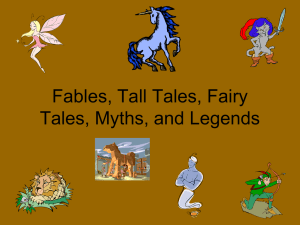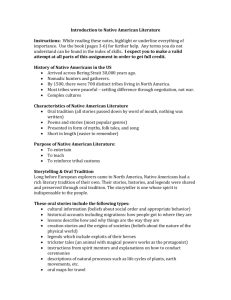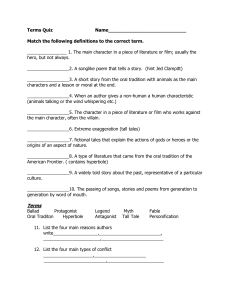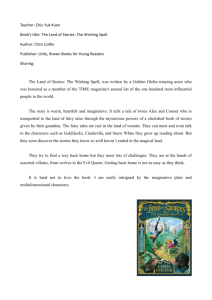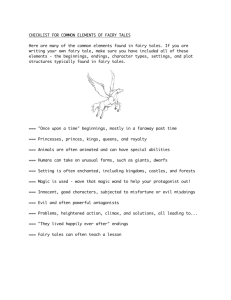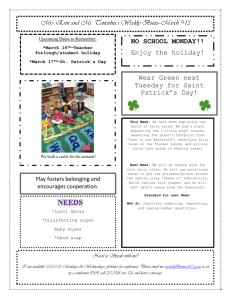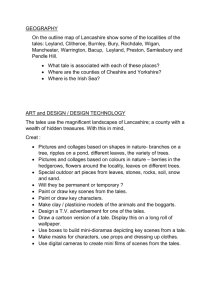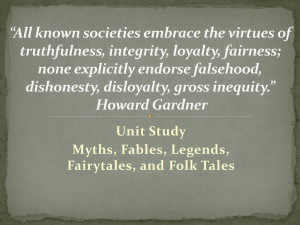Monday, October 29 Types of Oral Tradition
advertisement
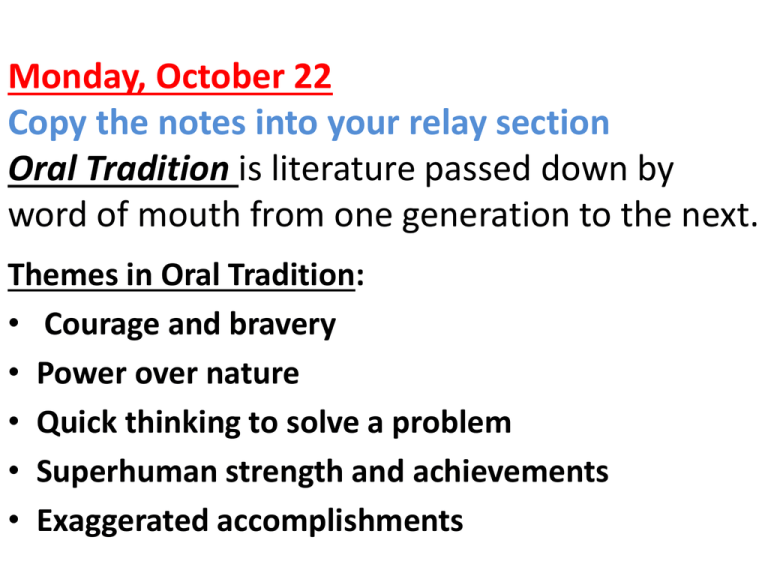
Monday, October 22 Copy the notes into your relay section Oral Tradition is literature passed down by word of mouth from one generation to the next. Themes in Oral Tradition: • Courage and bravery • Power over nature • Quick thinking to solve a problem • Superhuman strength and achievements • Exaggerated accomplishments Wednesday, October 24 Characteristics of Oral Tradition: didactic – meant to instruct or inform; teach lessons cultural – same story can vary from one culture to the next short – easy to remember and share mnemonic – have a rhythm, pattern, or predictability that makes them easy to remember Thursday, October 25 Copy the notes into your relay section • Folklore is the beliefs, customs, stories, songs, and dances of a culture; an oral tradition based on the lives of common people. • Folktales are anonymous, traditional stories passed down orally before they are written down. Folktales are based on folklore. Monday, October 29 Types of Oral Tradition: Myth – traditional story of anonymous origin that explains the beliefs and practices of people Legends – traditional story believed to be based on history. Tall Tales – imaginative tales of the adventures and amazing feats of North American folk heroes October 30, Tuesday Urban Legends – a modern story whose author is unknown that involves incidents of the recent past, is told as true, is plausible enough to be believed, that is framed as a cautionary tale Elements of urban legends are: Narrative (story) that varies in the telling Alleged to be true and seems believable Unproven Unknown origin attributed to trustworthy secondhand sources Thursday, November 1st Folk Ballad – short narrative song or poem that tells of an exciting or dramatic episode. Trickster Tales – folktale that features a character who outsmarts everyone else in the story. The trickster is usually the “underdog” who uses skill and cunning to outwit a superior. Tricksters are usually animals. Fairy Tales – a magical tale of legendary deeds and creatures. Cumulative Tales – stories that are “added upon” as the telling unfolds. Friday, November 2 Think about your favorite fairy tale character. How old is it? What makes fairy tales universal and ageless (timeless)? Write your answer in essay form. Monday, November 5 Use your relay notes to answer: What is a traditional story that is believed to be based on history called? What does hyperbole mean? What are 3 characteristics of oral traditions? The Giver (page 157) “A year ago,” Jonas reminded him,” when I had just become a Twelve, when I began to see the first color, you told me that the beginning had been different for you. But that I wouldn’t understand.” The Giver brightened. “That’s true. And do you know, Jonas, that with all your knowledge now, with all your memories, with all you’ve learned—still you won’t understand? Because I’ve been a little selfish. I haven’t given any of it to you. I wanted to keep if or myself to the last.” “Keep what?” “When I was just a boy, younger than you, it began to come to me. But it wasn’t the seeing-beyond for me. It was different. Fro me, it was hearing-beyond.” Jonas frowned, trying to figure that out. “What did you hear?” he asked. “Music,” The Giver said, smiling.

